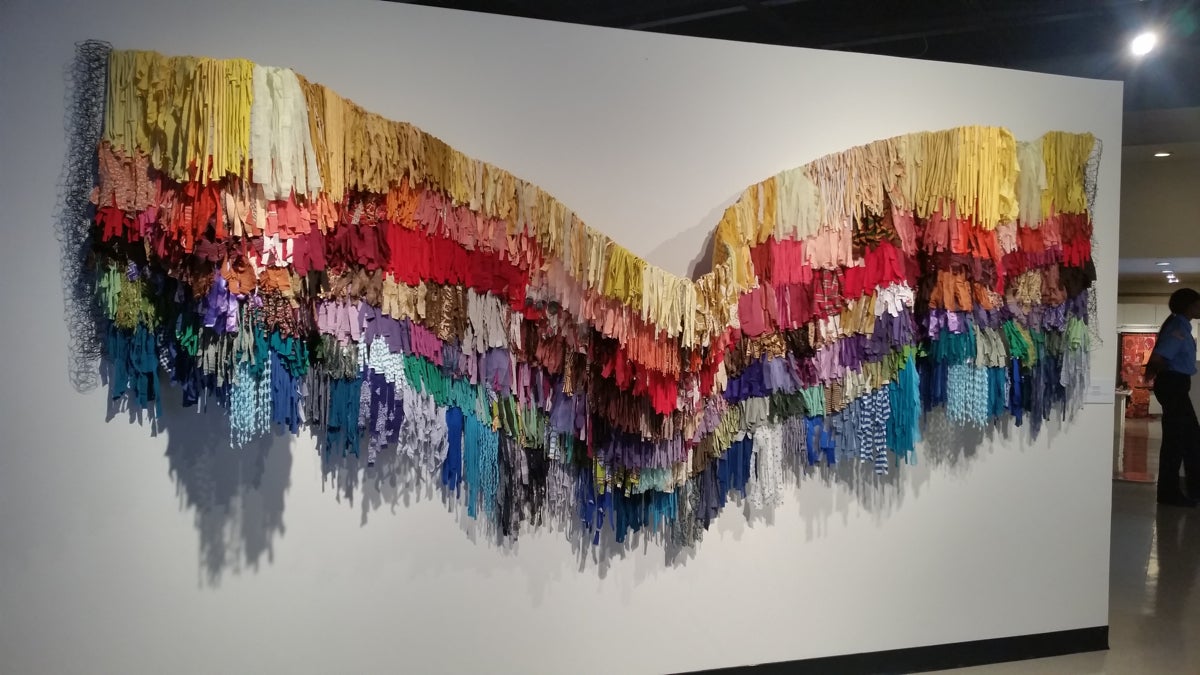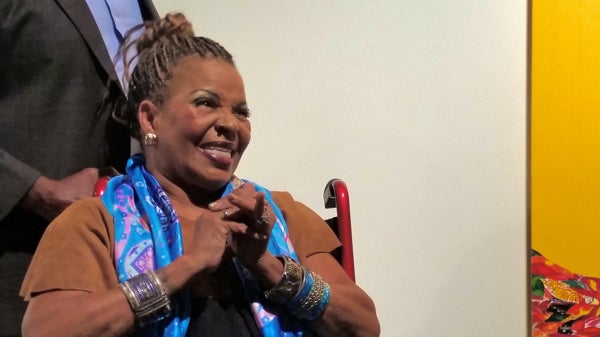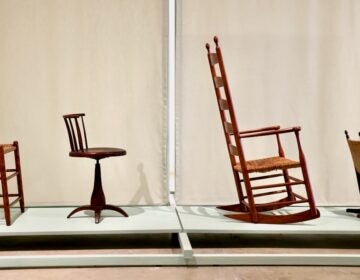Inspiring visual artists and new generations, ‘for colored girls’ resonates across the years

Amber Robles-Gordon's 'my rainbow is enuf' 2014. (Peter Crimmins/WHYY)
The African American Museum in Philadelphia has turned 40 years old, and to mark the occasion it is celebrating another 40th anniversary.
In 1976, the groundbreaking play “for colored girls who have considered suicide/ when the rainbow is enuf” premiered on Broadway, written and performed by Ntozake Shange.
The galleries of the museum are filled with work by artists influenced by the play.
“for colored girls” is a choreo-poem: part play, part monologue, part dance, mostly poetry. It’s unusual format, deep vulnerability, and strong black feminism made it a hit, and it has been in production — in one way or another — almost constantly ever since.
“I’m fairly amazed that it’s stayed vibrant so long, and passed from one generation to the other,” said Shange. “I find that most gratifying, that grandmothers take their granddaughters to see it.”
 Ntozake Shange. (Peter Crimmins/WHYY)
Ntozake Shange. (Peter Crimmins/WHYY)
Shange visited the African American Museum in Philadelphia — just a few blocks from where she once had an apartment in Old City — to open an exhibition called “i found god in myself.’’ Dozens of visual artists contributed work — including painting, photography, sculpture, and installations — much of it tied to specific lines in the play.
“My spirit is too ancient to understand the separation of soul & gender” is a portrait of Shange by Margaret Rose Vendryes. It features a standing Shange wearing an African tribal mask — it’s an actual Guro mask affixed to the canvas. Shange’s figure is turned, with hints of a floral tattoo on her back.
“It’s one of my favorites,” said Shange. “Because she got my tattoo right.”
The exhibition opened two years ago at the New York Public Library’s Schomburg Center, where Shange first saw it.
“It is so intriguing. Fascinating what they came up with,” said Shange. “I was just ebullient. I thought I was going to fly.”
Shange, now 67 and living in Brooklyn, had a severe stroke several years ago and suffers from a neurological disorder that slurs her speech and makes it difficult to control her hands. For 15 years, her fingers were so bad she could not press down keys on a keyboard. They would ineffectually slide off the glass of an iPad.
“I was very depressed. I didn’t see a purpose in being alive,” she said. “Without creating something, I didn’t know who I was.”
Only recently has she regained the ability to write poems. And she said a new book of new and selected poems is on the way.
WHYY is your source for fact-based, in-depth journalism and information. As a nonprofit organization, we rely on financial support from readers like you. Please give today.





